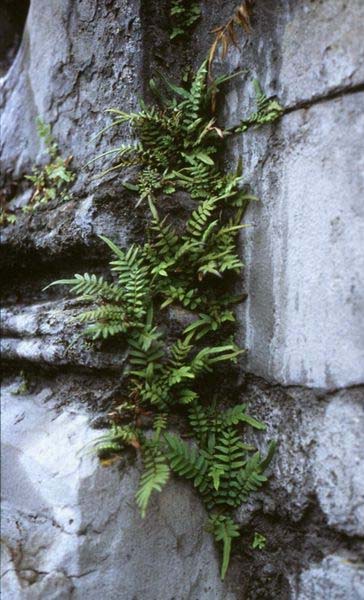 This study by National Environmental Engineering Research Institute published in Current Science was carried out to identify Pteris vitta and test its hyper-accumulating properties. The plant is commonly known as the Ladder brake fern or Chinese brake fern plant in India, and had been reported elsewhere as an arsenic hyper-accumulator.
This study by National Environmental Engineering Research Institute published in Current Science was carried out to identify Pteris vitta and test its hyper-accumulating properties. The plant is commonly known as the Ladder brake fern or Chinese brake fern plant in India, and had been reported elsewhere as an arsenic hyper-accumulator.
.The remediation of arsenic and chromium contaminated soil and water has become an important environmental issue. It is in this context that the discovery of hyper-accumulator plant species, which have the unusual ability of accumulating metals such as arsenic (As), chromium (Cr), zinc (Zn), nickel (Ni) and copper (Cu) to very high concentrations, has further boosted technologies based on this property.
This is the first report of characterization of arsenic accumulation in an Indian ecotype (plant), which also shows chromium hyperaccumulation in addition to arsenic. Intact plantlets were grown in 20 per cent Hoagland solution amended with up to 200 mg arsenic or chromium medium. Plants absorbed and accumulated a significant amount of arsenic and chromium in their biomass with high bio-enrichment factor. Arsenic and chromium tolerance by spores and gametophytes under in-vitro was also assessed.
The study finds that arsenic and chromium accumulation in the gametophyte biomass was more, when spores were directly germinated on arsenic (As-) and chromium (Cr-) supplemented media. Arsenic and chromium accumulation in the gametophyte biomass was less when spores were germinated first on media devoid of arsenic and chromium, but subsequently grown on arsenic (As-) and chromium (Cr-) amended media.
This new finding adding to its ability for hyper-accumulation make it a potential plant for use as an alternative system for remediation of As- and Cr- contaminated soil and water.
Photo Courtesy: Wikipedia
Download the paper from the Current Science website here.